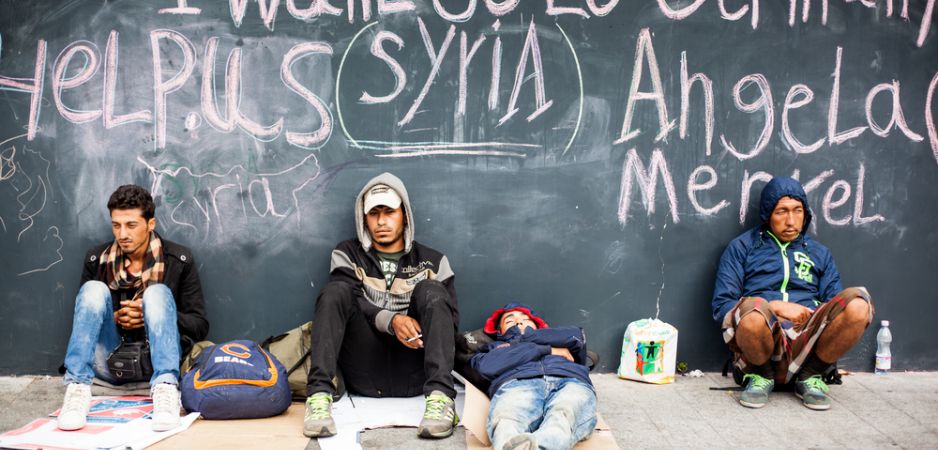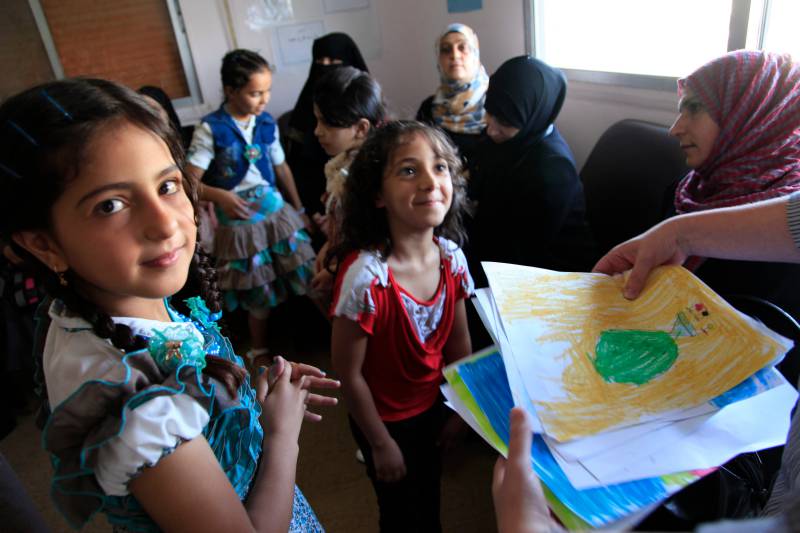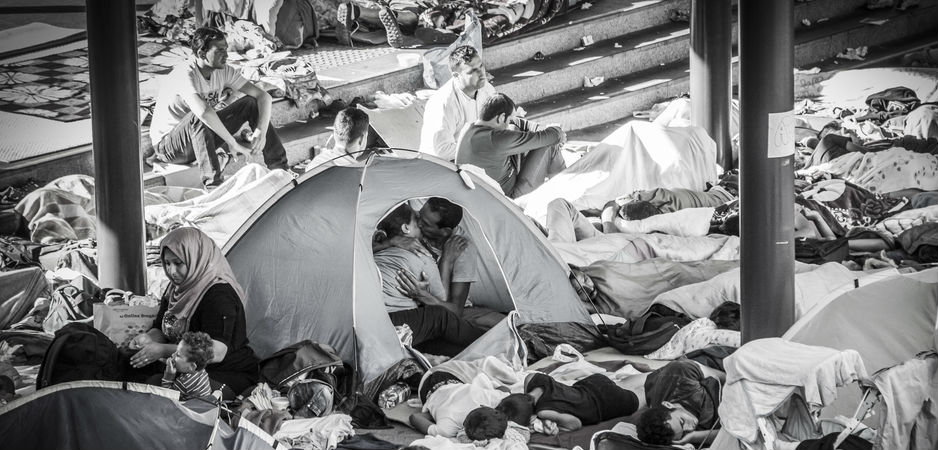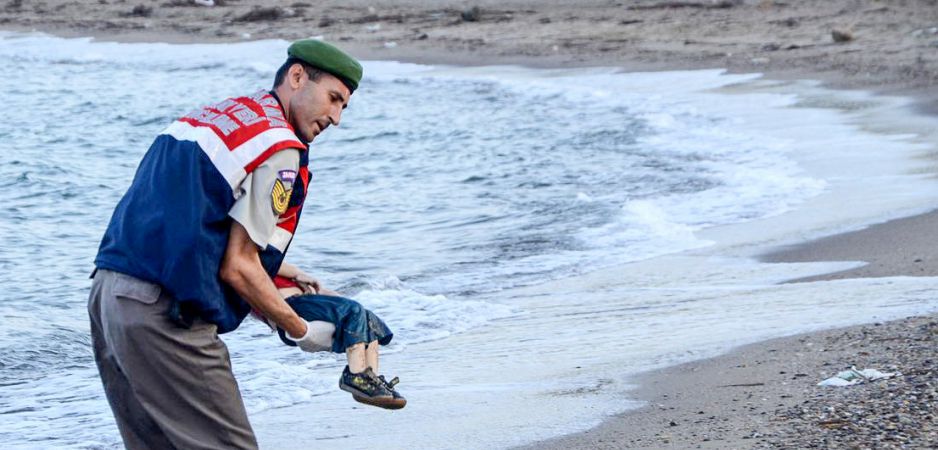Aging Germany is likely to overcome the challenges and benefit greatly from the influx of immigrants, given its experience and economic strength.
Many of my non-German friends ask me how are we handling the huge numbers of immigrants coming to Germany and how will we continue to do so in the future. A large amount of immigrants are asylum seekers from Syria and Iraq, but many are economic migrants from the Balkan states and Africa. African immigrants, such as those from Libya, end up reaching Germany via Italy after an often hazardous voyage across the Mediterranean Sea.
People Are Flocking to Germany
In 2015, Germany expects to take in 800,000 refugees. On first impression, this seems impossible. The stress on German society and politics might prove to be unbearable. However, after reading a fair bit and interacting with a number of people, I have come to a different view. We will be able to handle the situation better than most expect. Germany will benefit from the influx of immigrants despite all the risks they bring.
Six years ago, the Federal Statistics Office published a study that predicted the German population would decrease from 82 million to 65 million by 2060. The study predicted that increasing life expectancy would lead to an aging society with a rising number of dependents for every working person. Japan is already facing the social and economic problems brought about by aging. There is a strong fear that Germany could face Japan’s fate.
The 2008-10 global financial crisis affected Germany less than other European nations. Countries like Spain, Italy, Portugal and Greece have over 25% unemployment. Therefore, many well-educated youth from these nations have come to Germany to find jobs. In 2014, Germany experienced a net influx of 400,000 people. This stabilized the German population last year.
A Century of Immigration
We have a long history of immigrants who came to the country to work in our industrialized society. In the early 20th century, German coal mines attracted Polish workers. Italians arrived in the 1950s as gastarbeiter, the German word for guest workers. They were followed by other people from the Mediterranean such as those from Yugoslavia. Eventually, more than 3.5 million Turks arrived to settle in cities like Berlin, Munich and Duisberg. Germany has become a more diverse country as a result, and there is much more choice when it comes to food or restaurants in most cities.
On June 20, German President Joachim Gauck gave a major speech in which he talked at length about immigration. He spoke about Germany’s history of integrating refugees and remembered how “a poor and ruined Germany managed to integrate millions of refugees” after World War II. Most post-war refugees were Germans from East Prussia and Silesia who spoke the same language and share a similar culture to the rest of the population. Without these hungry immigrants, the country would not have had its wirtschaftswunder, the German word for economic miracle. Germany needed immigration because it had lost millions of soldiers and civilians during the war.
The German population is decreasing by 450,000 every year. Without immigration, this number is bound to go up. This will slow down the German economy considerably. Hence, many CEOs of large German companies are welcoming the new immigrants. Opinion polls such as those conducted by ARD-Deutschland reveal that more than two-thirds of Germans support the current immigration policy. Support is particularly strong when migrants come from hopeless countries like Syria and are refugees. Those who come from places like the Balkan states are deemed economic migrants and tensions rise when they claim generous German benefits.
Realities and Challenges
A few days ago, I went to the Munich central railway station as the refugees streamed in. I took cash and clothing to distribute to those who were arriving. There were so many of them in such dire straits that trying to help was nearly impossible. I feel proud of my people, of the police, of the hundreds of volunteers who handled more than 10,000 Syrian refugees in a single day. They had taken the Balkan route and arrived via Turkey, Greece, Macedonia, Serbia, Hungary and Austria. Along the way, these refugees had faced a lot of trouble, particularly in Hungary.
Once they arrived, the police registered the refugees and distributed them across Bavaria and Germany. Volunteers worked closely with authorities to make this possible. Mobile hospitals and food centers opened up. Donations in cash and in kind continue to pour in because these refugees possess little and are starting life from scratch. People have sent clothing, especially for winter, and food in greater quantities than can be currently handled. I guess many in the older generation still remember refugees who fled the Nazis. The entire exercise to provide for the refugees is incredibly impressive and inspiring.
In our affluent little city of Icking, 30 kilometers south of Munich, the first eight Nigerian refugees are living in an empty home of a Catholic priest. They are being helped by 40 volunteers. Our immigrant quota has been revised upward by an additional 80 refugees for 2015. This is not insignificant in a town of 3,500. It is already leading to some tension. The conservative members of the city council blocked the purchase of an empty house for €1.9 million. Hence, from September 30, the sports hall of our high school will be converted into a refugee home. We hope to find refugees a better place to stay soon.
Meanwhile, students will have to exercise in the woods and fields as long as the refugees stay in their sports hall. This simple situation demonstrates that numerous challenges lie ahead both for refugees and local inhabitants.
Challenges to Address
The major challenges that Germany must address are as follows.
First, housing was in short supply even before the flow of new immigrants. We have to relax our building codes and find innovative ways of accommodating the newcomers without making housing scarce for the existing population.
Second, we need to conclude agreements with our European neighbors. This might be a big headache, especially when it comes to some eastern countries. The migrant crisis might also damage the stability of the European Union (EU). Yet we have to persist as Europeans and find a way to relieve the pressure on countries like Italy, Greece and Germany.
Third, we have to keep groups belonging to the extreme right under control. So far, we have done very well overall to keep these groups to the fringes of society. However, they remain a high risk for Germany. We can see how eastern parts of the country suffering high unemployment are susceptible to the charms of these groups. We will have to remain vigilant and work constantly to keep these groups under control.
Fourth, normal politicians might resort to populism and rabble rousing to win cheap support. The situation is delicate. Tensions will grow. Resentments will rise. Stirring discontent will be easy. So, the people have to keep politicians under check and demand long-term solutions instead of inflammatory rhetoric and identity based politics. As a people, we will have to develop the maturity to ignore nasty events, which will invariably occur.
Fifth, education will be a great challenge in the days to come. The newcomers will need to learn the German language. Their children will have to go to school. They themselves need training in new skills. They will need apprenticeships and on the job training as well. The German education system will have move nimbly to meet the requirements of new arrivals to the country.
Plenty of Reasons for Cheer
Despite the challenges, I am positive about the events and their implications for the future.
First, I believe the majority of the refugees will try to adapt as fast as possible. They are hungry and driven. Like immigrants before them, they will try their best to qualify for good jobs and provide Germany with much needed labor. My wife, my children and I travel a lot. We have lived in many countries, including Arab ones. There are cultural differences for sure, but they already exist within Germany itself. Refugees will largely adapt well to Germany.
Second, the refugees arriving in Germany are hungry with nothing left to lose. There is no way to stop them from entering our country. Germany can try to distribute refugees across Europe, but the primary responsibility will fall on us—at least as long as the Balkan route is the preferred way of travel. The fact that Britain has agreed to accept 20,000 Syrians by 2020 is a joke. This is a number that arrives in Munich over a weekend. There are currently over 4 million registered Syrian refugees in Turkey, Lebanon, Iraq, Jordan and Egypt. Only Germany would be willing to accept large numbers of them.
Third, we have successfully integrated over 15 million immigrants over the past 70 years. Some of them came from as far as from Kazakhstan with remote German ties and knowledge of the German language. These immigrants are an organic part of German life and stimulate our economy.
Fourth, we can afford to take care of refugees and have the expertise to do so. We rebuilt Germany after World War II. We integrated East Germany 25 years ago at a great expense. This integration was partly financed by the Solidaritätszuschlag, a 5.5% tax on the income tax due affectionately called Soli. We will survive the Greece debacle too. The inflow of immigrants will certainly be expensive, but we can pay for it. In the first half of 2015, the federal budget of Germany had an unexpected budget surplus of €26 billion. This year, the City of Munich will have a surplus again and will continue to repay public dept. Some of this money at federal, state and city levels can easily go to refugees.
Fifth, the unemployment rate in Germany is currently approximately 6%. Between Munich and Ingolstadt, the headquarters of BMW and Audi respectively, the unemployment rate is below 1%. The employment office records more than 500,000 unfilled jobs, and companies are setting up recruitment centers in some Mediterranean countries. Refugees could fulfil the German economy’s demand for labor.
Sixth, not all of the 800,000 refugees expected in 2015 will stay for good. Some will not gain asylum, while others might be transferred to other EU states. The numbers that will permanently stay in Germany is a wild guess, but somewhere between 500,000 and 600,000 for 2015 seems to be a reasonable figure. This number fortuitously compensates for the average annual decrease of our population quite well. Perhaps, we might be in a position to admit refugees around this figure in the years to come.
In summary, I believe the glass is half full rather than half empty. The opportunities outweigh the risks. The influx of immigrants presents great challenges to our politicians, our society and indeed every single German. However, we can overcome these challenges if we pull together.
The views expressed in this article are the author’s own and do not necessarily reflect Fair Observer’s editorial policy.
Photo Credit: Istvan Csak / Shutterstock.com / DFID / Flickr
 We bring you perspectives from around the world. Help us to inform and educate. Your donation is tax-deductible. Join over 400 people to become a donor or you could choose to be a sponsor.
We bring you perspectives from around the world. Help us to inform and educate. Your donation is tax-deductible. Join over 400 people to become a donor or you could choose to be a sponsor.
For more than 10 years, Fair Observer has been free, fair and independent. No billionaire owns us, no advertisers control us. We are a reader-supported nonprofit. Unlike many other publications, we keep our content free for readers regardless of where they live or whether they can afford to pay. We have no paywalls and no ads.
In the post-truth era of fake news, echo chambers and filter bubbles, we publish a plurality of perspectives from around the world. Anyone can publish with us, but everyone goes through a rigorous editorial process. So, you get fact-checked, well-reasoned content instead of noise.
We publish 2,500+ voices from 90+ countries. We also conduct education and training programs
on subjects ranging from digital media and journalism to writing and critical thinking. This
doesn’t come cheap. Servers, editors, trainers and web developers cost
money.
Please consider supporting us on a regular basis as a recurring donor or a
sustaining member.
Support Fair Observer
We rely on your support for our independence, diversity and quality.
Will you support FO’s journalism?
We rely on your support for our independence, diversity and quality.



















